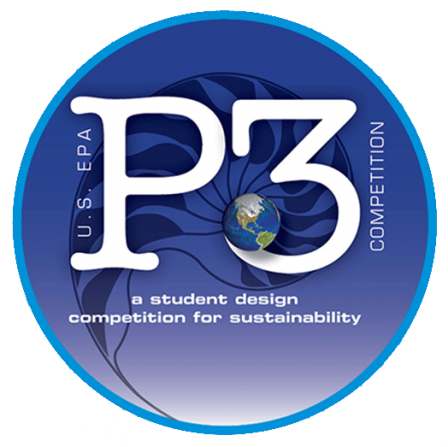California Universities Win Grants for Innovative Sustainability Projects
 EPA has awarded three $75,000 People Prosperity and the Planet (P3) Phase II grants to the California State University (CSU), Sacramento; CSU, Chico; and the University of California, Riverside.
EPA has awarded three $75,000 People Prosperity and the Planet (P3) Phase II grants to the California State University (CSU), Sacramento; CSU, Chico; and the University of California, Riverside.
EPA's P3 Program is a unique competition in which college teams design solutions for a sustainable future. P3 offers students hands-on experience that brings their classroom learning to life. The competition has two phases. Teams selected for Phase I awards receive grants of up to $15,000 to fund the development of their projects, which are then showcased at the National Sustainable Design Expo in the spring. Following the Expo, P3 teams compete for Phase II awards of up to $75,000 to further develop their designs and potentially bring them to the marketplace.
The CSU, Sacramento team will use its award to develop a system for converting organic wastes into protein feed, which is then used to produce vegetables and fish for human consumption. Organic materials – such as food scraps and grass clippings – represent more than 37% of the U.S. waste stream. The team’s sustainable closed-loop food production system will use campus-generated organic wastes to produce high-quality protein feed to raise fish and plants. Earthworms, insects and other decomposers will be farmed on the organic wastes to produce protein feed and nutrient rich compost. The team will conduct a pilot test on the CSU, Sacramento campus to assess the system’s feasibility.
The CSU, Chico team will use its award to evaluate biofiltration systems for use on surface water runoff. Using laboratory experiments, the team will analyze the performance of various media types, plant types and design configurations on biofiltration systems for treating surface water runoff. In addition, the team will perform a life-cycle analysis to estimate the overall impact of biofiltration systems on the environment and local economy. They will also create biofiltration system design guidance for communities and practitioners in small urban areas.
The UC Riverside team will use its award to test the use of rice husks as a sustainable building material in the Philippines. As the eighth-largest rice-producing country in the world, the Philippines has a great abundance of rice husk and rice straw waste materials. The team plans to create a proof-of-concept design for a rice-husk building material that is sustainable, termite-resistant, and environmentally sound. If successful, the new material may be used to provide relief shelter for people who lost their homes in a 2013 earthquake on the island of Bohol.
- More Information about People, Prosperity, and the Planet
